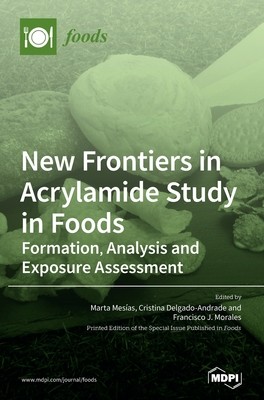
- We will send in 10–14 business days.
- Publisher: MDPI AG
- ISBN-10: 3036500308
- ISBN-13: 9783036500300
- Format: 17 x 24.4 x 1.4 cm, kieti viršeliai
- Language: English
- SAVE -10% with code: EXTRA
New Frontiers in Acrylamide Study in Foods (e-book) (used book) | bookbook.eu
Reviews
Description
The European Food Safety Agency (EFSA) has identified acrylamide as a public health concern due to its relation with the appearance of different types of cancer, and continued efforts are required to reduce exposure to acrylamide (EFSA, 2015). During the last few years, EFSA has maintained a high level of supervision to monitor the acrylamide levels in processed products, urging companies to implement effective mitigation strategies for reducing formation of this contaminant. Recently, the European Commission has published a regulation that sets mitigation measures for the reduction of this compound in foods, identifying new benchmark levels for a number of food categories (European Commission, 2017). The Regulation 2158/2017 compels food processors and food business operators in Europe to reduce the presence of acrylamide in their products, applying measures proportionate to the size and nature of the establishments. With the goal of providing information that contributes to our understanding for this process contaminant and exposure through dietary routes, this Special Issue explores the recent advances on the study of acrylamide in foods, including novel insights into the chemistry of its formation and elimination, effective mitigation strategies, conventional and innovative monitoring techniques, risk/benefit approaches, and exposure assessment.
EXTRA 10 % discount with code: EXTRA
The promotion ends in 23d.16:27:20
The discount code is valid when purchasing from 10 €. Discounts do not stack.
- Publisher: MDPI AG
- ISBN-10: 3036500308
- ISBN-13: 9783036500300
- Format: 17 x 24.4 x 1.4 cm, kieti viršeliai
- Language: English English
The European Food Safety Agency (EFSA) has identified acrylamide as a public health concern due to its relation with the appearance of different types of cancer, and continued efforts are required to reduce exposure to acrylamide (EFSA, 2015). During the last few years, EFSA has maintained a high level of supervision to monitor the acrylamide levels in processed products, urging companies to implement effective mitigation strategies for reducing formation of this contaminant. Recently, the European Commission has published a regulation that sets mitigation measures for the reduction of this compound in foods, identifying new benchmark levels for a number of food categories (European Commission, 2017). The Regulation 2158/2017 compels food processors and food business operators in Europe to reduce the presence of acrylamide in their products, applying measures proportionate to the size and nature of the establishments. With the goal of providing information that contributes to our understanding for this process contaminant and exposure through dietary routes, this Special Issue explores the recent advances on the study of acrylamide in foods, including novel insights into the chemistry of its formation and elimination, effective mitigation strategies, conventional and innovative monitoring techniques, risk/benefit approaches, and exposure assessment.


Reviews